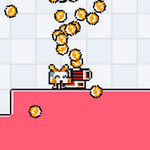
push Unblocked
## The Push That Keeps Us Coming Back: The Enduring Appeal of Push Games
Push games, often referred to as "push-to-win" or "push your luck" games, have captured the imaginations of gamers for decades. Their simple mechanics and addictive gameplay, fueled by a constant tug-of-war between cautious strategy and the thrill of pushing your luck, have solidified their place as a beloved genre.
The Basics: A Simple Formula for Excitement
At their core, push games involve a simple concept: players take turns accumulating resources, points, or other benefits, with each action carrying a risk of losing everything. This risk-reward system is the heart of the genre's appeal.
Examples of Push Games: From Board Games to Mobile Apps
The world of push games is vast, encompassing titles across various platforms.
* Board Games: Classics like 7 Wonders, Codenames, and King of Tokyo offer players the chance to push their luck during the drafting, bidding, or dice-rolling phases.
* Card Games: Poker, Blackjack, and Rummy are prime examples of push games, where players must strategically manage their hand while gauging the risk of going all-in.
* Mobile Games: Games like Candy Crush Saga, Subway Surfers, and Temple Run thrive on the "one more try" mentality, pushing players to test their limits.
The Psychological Pull: Why We Can't Stop Pushing
The allure of push games lies in their inherent psychological appeal. They tap into our natural desire for:
* Control: We crave the illusion of control, even when the outcome is largely random. The strategic decisions we make, even if they're ultimately overridden by chance, provide a sense of agency.
* Risk and Reward: The possibility of great gains, even at the risk of significant loss, triggers a dopamine rush that keeps us hooked.
* The "Just One More" Factor: Each push, each attempt, brings the promise of victory, leading to the addictive cycle of "one more try."
Beyond the Simple Push: Strategic Depth and Variations
While the core mechanics of push games might seem simple, many titles offer surprising depth and strategic complexity.
* Strategic Drafting: Games like 7 Wonders and Dominion require careful consideration of which cards to acquire, maximizing both immediate benefit and long-term strategy.
* Resource Management: Games like Agricola and Puerto Rico push players to juggle limited resources and make tough choices about where to invest them.
* Variable Setup: Many push



































